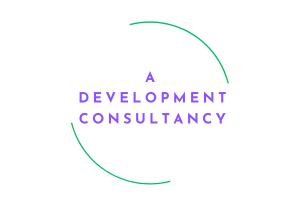Psychometric tools: how they can help you to find and define the ‘right fit’ people
Psychometric tools: how they can help you to find and define the ‘right fit’ people
 The assessment market is awash with a myriad of psychometric tools, all professing to do something better than the others. Do you have a high performing team which you would like to replicate across other parts of the business? Perhaps a cultural challenge in a team that you are trying to fix?
The assessment market is awash with a myriad of psychometric tools, all professing to do something better than the others. Do you have a high performing team which you would like to replicate across other parts of the business? Perhaps a cultural challenge in a team that you are trying to fix?
Or are you recruiting for a new starter? Maybe you need to check they have the intellectual and emotional ability to do the role or want to make sure they represent the correct personality fit.
Do you go with MBTI, Insights, DiSC, 16PF, SHL, FIRO-B, Hogan, GBQ… the list of options continues! How do you know which psychometric tool is going to offer you the insight you need? And how do you make sure you’re investing your money in the right place? Let’s start by looking at the benefits of psychometrics as a whole.
Why use a psychometric tool?
- Fundamentally, a psychometric tool arbitrarily assesses an individual’s cognitive ability or their personality preference. An interview will always be skewed through the lens of the people conducting it, whereas a psychometric (and to a certain extent, an assessment centre) gives you data you can assess without influence.
- Psychometrics eradicate unconscious biases and can compare the candidate against a norm group to help you make an educated decision. They are 14 times more accurate in predicting future job performance than a selection interview (Hunter and Hunter, 1984).
- From a personality perspective, some psychometric tools can plot teams on a 360 so you can identify potential derailers. Using such a tool, and introducing a new person’s profile into the mix, can help you to explore what the future dynamics might be. Situational judgement tests feature somewhere in between, assessing both cognitive ability and personality preference in relevant simulated conditions.
- Critically, when dealing with people it’s important that you have as much information at your fingertips. Using psychometric, cognitive or personality tests can give you that data for both new and existing individuals or teams.
A note on ability tests
There are numerous ability tests available from reputable publishers, which assess a broad range of skills such as numerical or verbal skills, resilience, error-checking and even technical skills like marketing, sales, customer services and finance. In more junior/administrative roles, you may want to use a numerical reasoning test to assess the individual’s ability to work with numbers, or for more specific roles, such as sales, there may be a suitable technical assessment which can separate the average from the strong salespeople.
Alternatively, if your organisation or the role is particularly unique, you might decide to develop a bespoke assessment tool which will assess the key skills for your role(s). Using an ability test is particularly helpful where the skill you want to assess (e.g. bookkeeping, marketing or graphic design) is best determined by seeing the individual’s work, rather than having them describe their approach verbally in an interview. Another way of thinking about this is when it’s more important WHAT the candidate does, rather than HOW they do it.
A note on personality assessments
For other roles where it may be difficult to see evidence of the individual’s approach (e.g. in an interview), a personality test can help you to confirm what you have heard, and potentially identify any areas of concern to explore. Personality assessments are really helpful when it’s more important HOW the individual works, rather than WHAT they do (e.g. a project manager needs to be able to work to deadlines and coordinate people effectively).
These tests typically assess three different types of approach: everyday behaviour (e.g. how fixed or flexible an individual is ‘normally’), derailing behaviours under stress (e.g. risk aversion), and underlying motivations/values/drivers (e.g. need for approval). When using multiple tests together and comparing factors across the entire suite, you can build a detailed picture of the individual, where they are most likely to succeed and where some of their derailers might detrimentally affect them.
Psychometric tools and ability or personality tests do not produce a silver bullet for assessment
Tests should never be used as a sole deciding factor in recruitment or development. The value comes from adding an additional viewpoint of the individual and giving you a greater understanding of the impact they are likely to have. Psychometrics can be a powerful learning tool when used correctly, for the individual and the organisation.
How can we help?
At People Business we have a large breadth of experience across multiple tools, and can help you to utilise them in a variety of interventions. Our Assessment team can help you to select the right tool, then support you with evaluating the data as part of a recruitment campaign. Both our HR and Talent teams use psychometric tools to support our clients with attraction, development and progression.
If you would like to talk to one of our consultants in the Assessment team, please get in touch.




